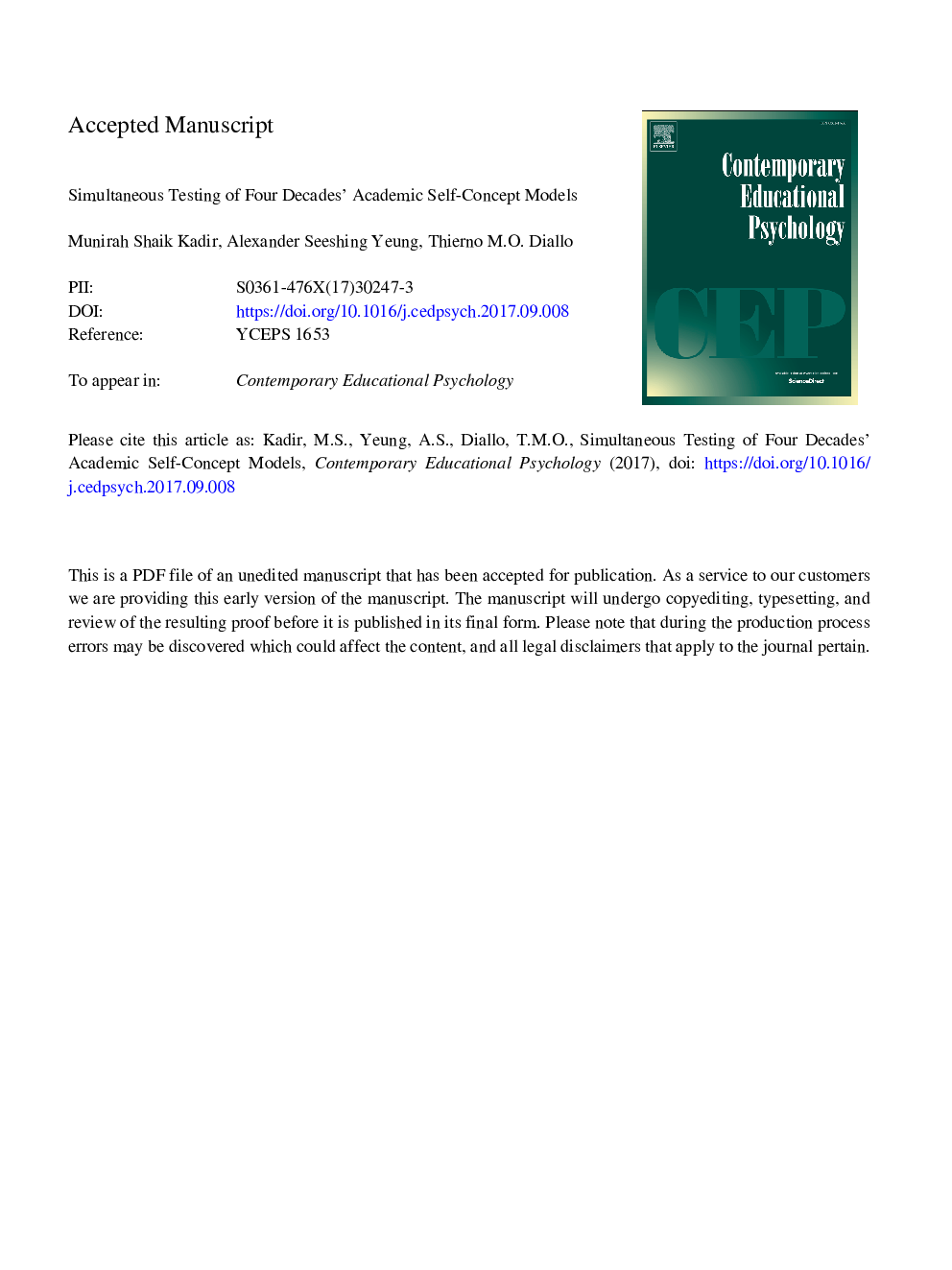| Article ID | Journal | Published Year | Pages | File Type |
|---|---|---|---|---|
| 6839745 | Contemporary Educational Psychology | 2017 | 66 Pages |
Abstract
In separate studies on academic self-concept, previous research has shown: (1) the distinctiveness of a cognitive and an affective component, (2) the domain specificity of self-concepts, (3) the reciprocal effects of self-concept and achievement, (4) the internal/external frame of reference in self-concept development, (5) the reciprocal effects of the internal/external frame of reference, (6) the big-fish-little-pond effect, and (7) the interrelatedness of self-concepts in similar domains. The present study demonstrates that all of these seven findings are replicable and may be synthesized in a single study with a sample of students in Singapore. Secondary 1 students (7th graders; N = 275) were surveyed with 24 items about their academic self-concepts in physics, English, and math in two components (cognitive and affective), and their respective achievement scores were recorded over two time points. Confirmatory factor analysis found that the cognitive and affective components of academic self-concept were separable. The students' self-concepts in different curriculum domains were distinct, supporting the domain specificity of self-concepts. The frame of reference and reciprocal effects were both supported, but only for the cognitive component of self-concept. Positive and statistically significant correlations between physics and math suggest that these curriculum domains were interrelated. Results of self-concept studies in schools can encourage and guide the design of interventions that could enhance students' self-concept for positive sustainable effects on desirable educational outcomes. Attempts to improve learning outcomes should emphasize an enhancement of specific components of academic self-concept in domain-specific and related curriculum domains for optimal effects.
Keywords
Related Topics
Social Sciences and Humanities
Psychology
Applied Psychology
Authors
Munirah Shaik Kadir, Alexander Seeshing Yeung, Thierno M.O. Diallo,
